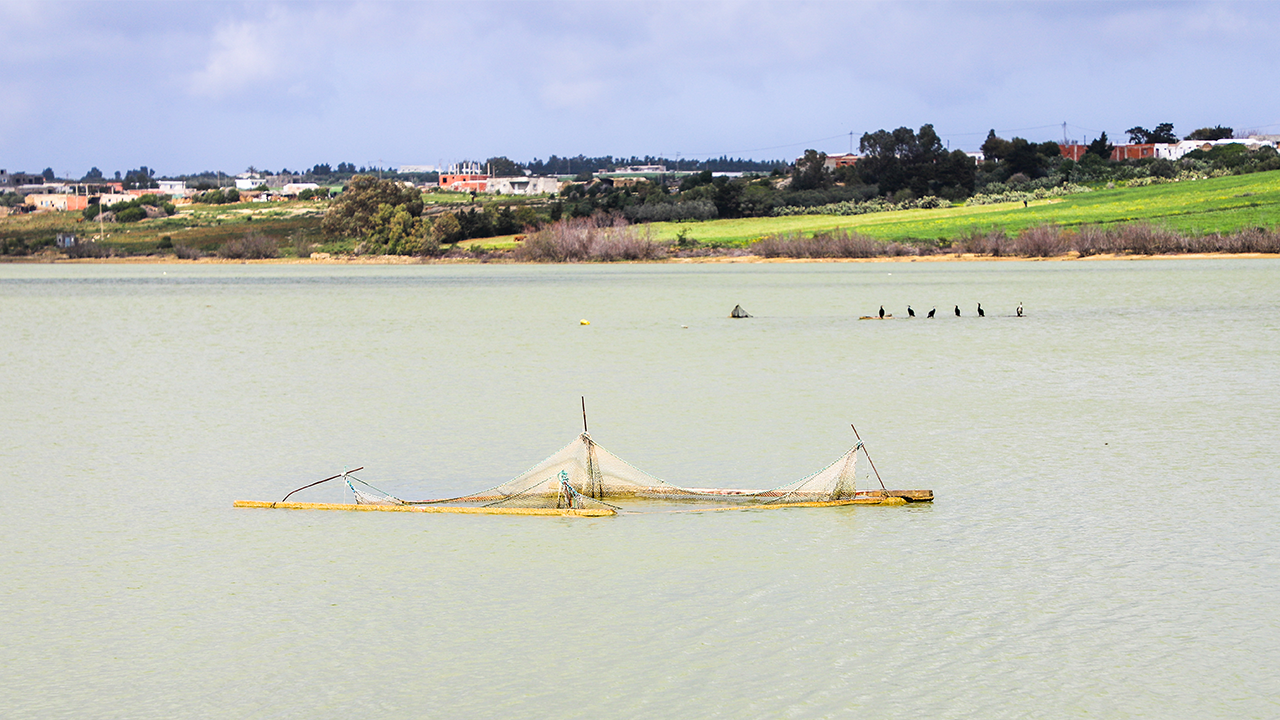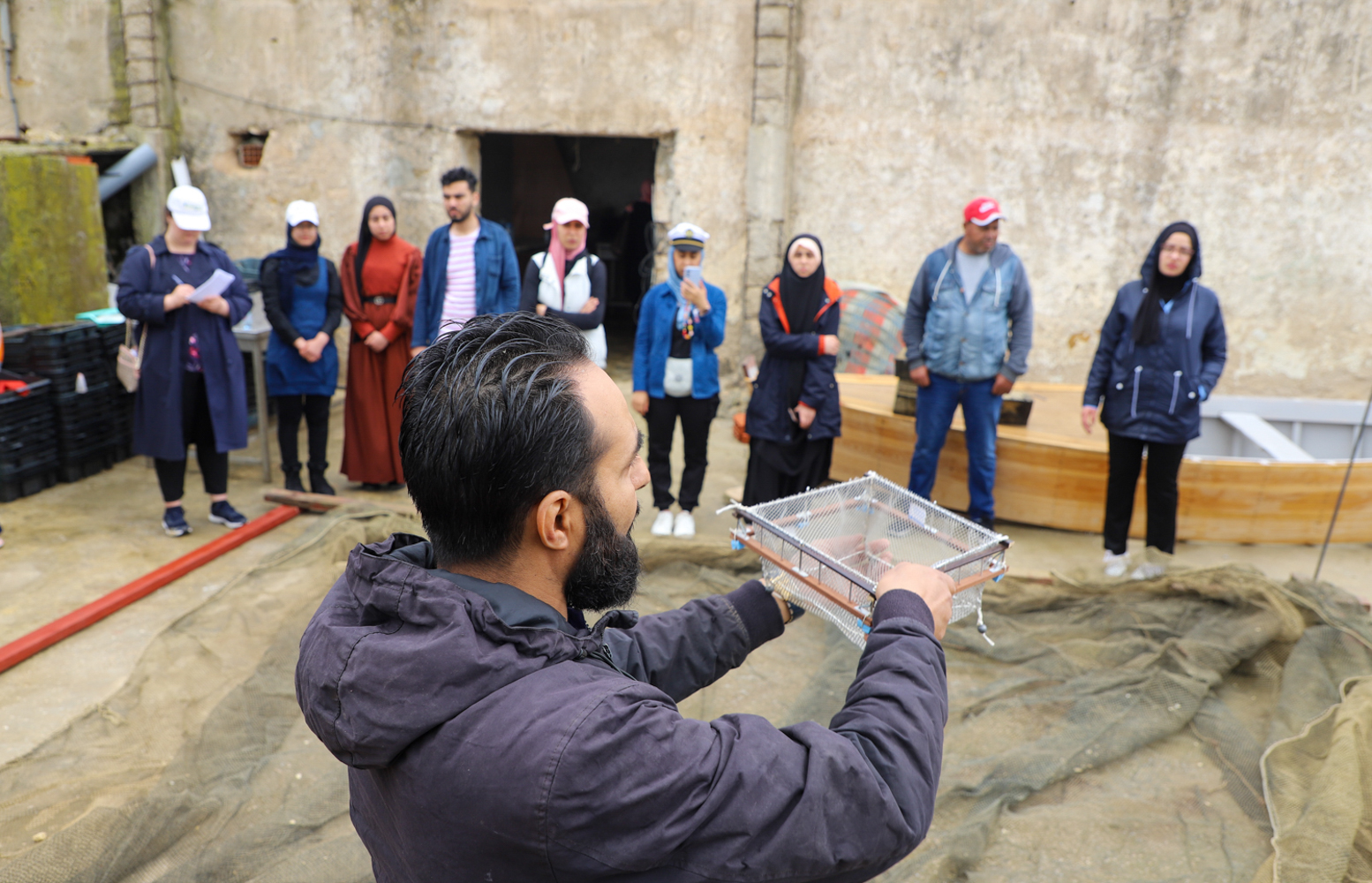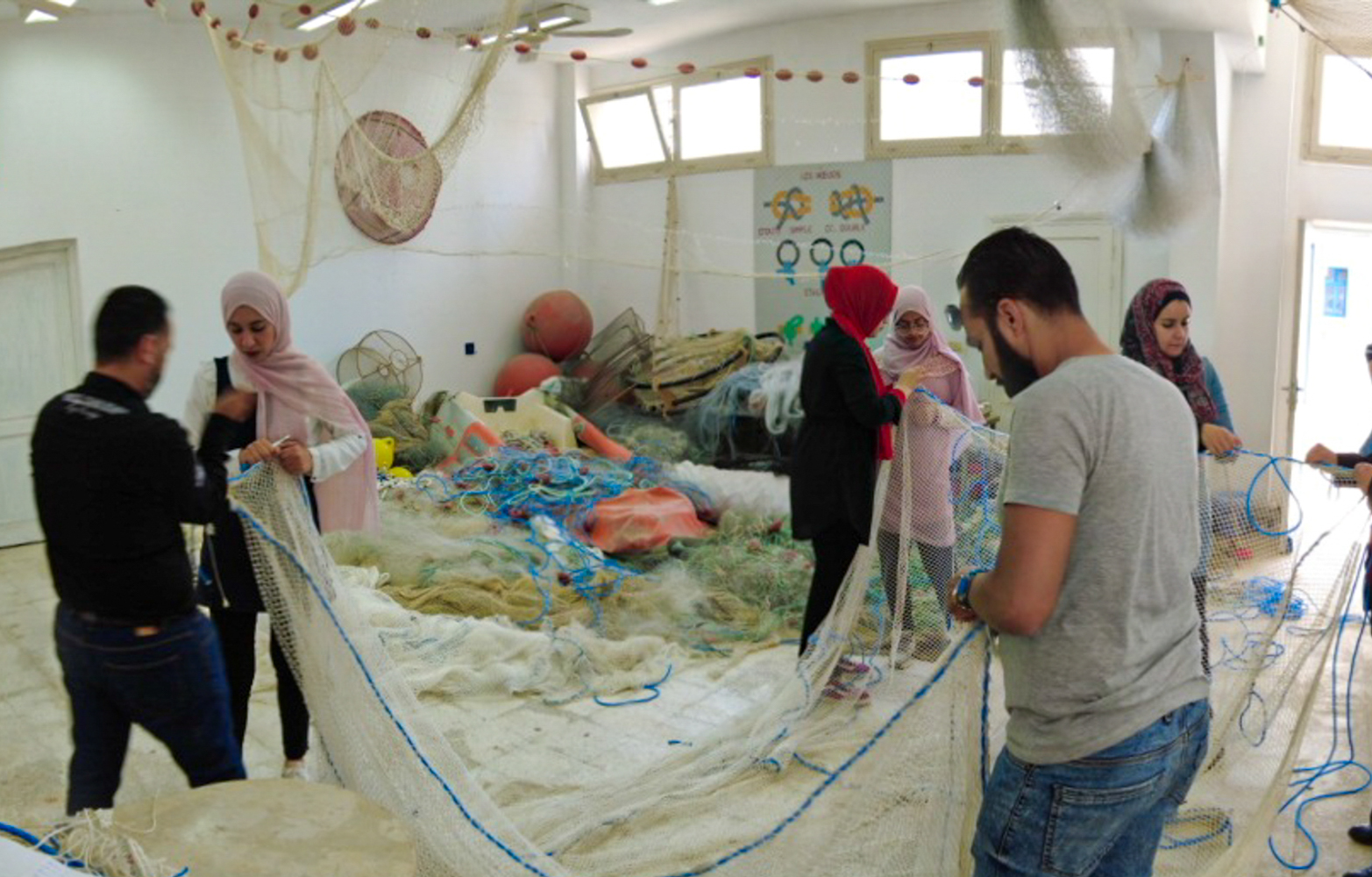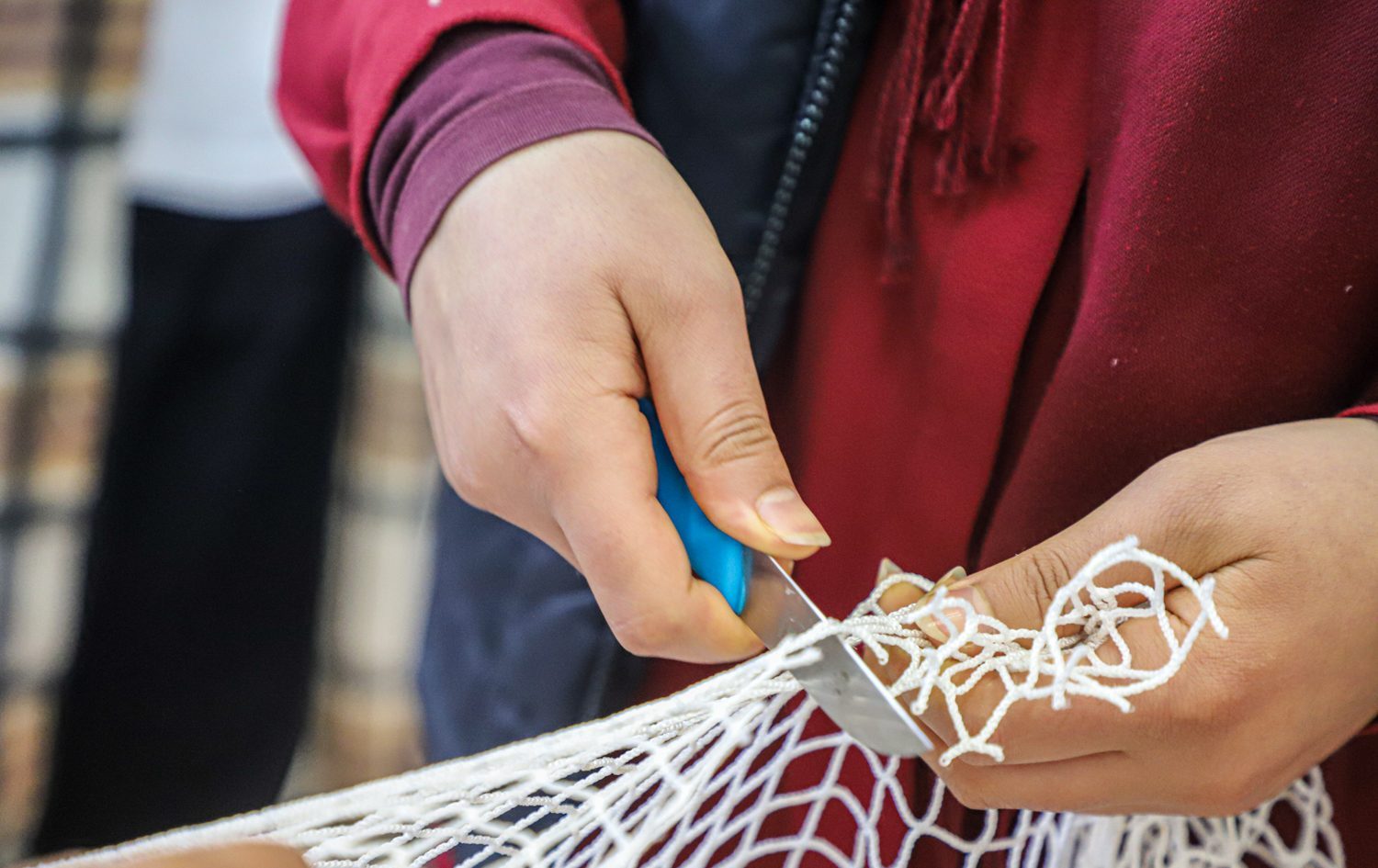The project, financed by TAUW Foundation and implemented thanks to the support of the local partner Club Bleu Artisanal, has a two years lenght and addresses the problem of the preservation and enhancement of the lagoon ecosystem in the Great Lake of Tunis (El Bhira) and Rades, threatened by overexploitation of living and halieutic techniques.
The area of the North Lake of Tunis and its needs
The North Lake of Tunis is one of the most important lagoons nationally but also internationally.
The lake offers great opportunities for fishing as the high salinity of its waters has made plankton thrive, feeding molluscs and fish in large quantities. In addition, the lake hosts large colonies of birds, especially pink flamingos stationed around the islet of Chikly.
During the last decade, the high number of fixed fishing systems installed and the non-respect of the rest period necessary to avoid the migratory movements of fish have led to the drop in production and the consequent reduction in the sources of income of the irresponsible fishermen.
It has also had a negative impact on communities that traditionally live off fishing-related activities in Lake Tunis, causing increased poverty and social problems.
The decrease in jobs in the sector and the lack of economic prospects for young people often results in exodus and illegal immigration.
In addition, environmental +problems related to the overexploitation of fishery resources, the reduction of stocks, the degradation of marine habitats and climate change contribute to increase the difficulties of the sector.

The objective of the Blue Marine project
The project aims to contribute to halting overexploitation of the Great Lake of Tunis and Rades to preserve its biodiversity, while also involving the local population with a focus on young people and women, in its management as an opportunity to create new and sustainable businesses linked to fish-farming and aquaculture.
The project aims to:
- promote the trinomial fishing-aquaculture on a small scale, culture and environment, to achieve the full responsibility of fishermen and their families in the management and integrated valuation of the assets of their land;
- promote the alternation between artisanal fishing and small-scale and medium-scale aquaculture activities to preserve natural stocks, improve the incomes of vulnerable fishermen and increase sustainable food production;
- promote craft activities with recycled materials, sustainable organic food production and new businesses related to fish by-products and sustainable organic food production for tourists and local markets.

The activities of the project
The project will be implemented in three different phases:
- During September and October 2022, 100 local fishermen will participate in several activities to promote association life and training in sustainable fishing techniques.
The objective of these activities is on the one hand to promote the creation of associations and cooperatives among fishermen working in and around the Great Lake of Tunis, as a means to reduce conflicts, lower production costs, access funding and support the competitiveness of the sector by guaranteeing a better income for members.
On the other hand, this activity aims to strengthen fishermen’s knowledge on methods and best practices for sustainable and responsible fishing that can ensure sustainability of natural resources and ensure products. - During the next 9 months, it will be organised several activities that will allow to have a bigger outreach outside of the fishermen’s community by touching at least 10,000 inhabitants of the Tunisian capital, from school students, passing from the costumers of citizens’ fish markets to get to foreigners who live the richest suburbs. Also, international online events will be organized to extend the field of influence of the project and dissemination of its message focusing on the reduction of waste and the promotion of the blue economy.
- The third and last phase will last 9 months and it will be encouraged entrepreneurial opportunities in favour of young people and women of the target communities based on the new entrepreneurial trends linked to the blue economy. To do this, at least 15 fishermen will be selected who will inaugurate the innovative practice of alternating fishing and aquaculture.


